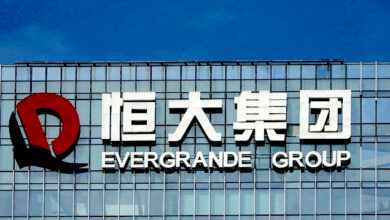VW Gets Ready to Tackle China’s Metal Restrictions; Chipmakers Downplay Potential Consequences

Volkswagen is keeping a close eye on the metals market as China enforces export limitations on two minor metals crucial for semiconductors and electric vehicles. However, chipmakers are downplaying concerns about potential shortages.
There’s a growing fear that China might impose further restrictions on strategic exports, including rare earths. This worry intensified after a prominent Chinese trade adviser mentioned that the new restrictions on gallium and germanium, effective August 1st, were only the beginning.
China’s unexpected announcement on Monday, imposing controls on the exports of specific gallium and germanium products starting August 1st, has led to a frantic rush among companies to secure supplies, resulting in increased prices.
This move, coming just days before U.S. Treasury Secretary Janet Yellen’s visit to Beijing, has prompted more companies to reconsider their dependence on the world’s second-largest economy.
VW, relying on gallium and germanium for its automotive products, stated that it is “prepared to take action with its partners if necessary.” However, no further details were provided. A spokesperson for the German automaker also mentioned that these metals will play a vital role in future autonomous driving capabilities.
Experts indicate that alternative sources of gallium cannot be quickly established before the upcoming restrictions take effect, and the existing supplies will last for only a few months at most.
“Inventories outside of China will last no more than six months, at best. So, the impact will be felt quite swiftly,” explained Alastair Neill, director at the Critical Minerals Institute.
Establishing a new facility would require a few years and substantial investment. However, if China changes its stance during that time, the investment may turn out to be futile. Neill added, “The challenge is, if you go down that road and then China lifts the ban, you might find yourself stuck with a white elephant.”
While the U.S. Defense Department maintains a strategic stockpile of germanium, there are currently no inventory reserves for gallium, according to a spokesperson.
The export limitations are likely to further strain U.S.-China relations as both countries vie for dominance in the semiconductor and defense technology sectors.
Officials from both sides are skeptical about Yellen’s four-day visit resolving the situation, acknowledging that safeguarding national security takes precedence over economic ties.
“If the talks between the two sides go well, many restrictions could be loosened. However, if the talks go poorly, both sides may impose more sanctions once Yellen returns home,” explained Capital Securities Corp analyst Liao Chien-yu.
Some industry players believe that the restrictions might lead to an oversupply of the two metals within China, resulting in depressed domestic prices while international costs soar.
Germanium finds its applications in high-speed computer chips, plastics, military equipment like night-vision devices, and satellite imagery sensors. Gallium is used in radar and radio communication devices, satellites, and LEDs.
Larger chip manufacturers perceive China’s export controls on gallium as a warning sign of the economic repercussions the country can impose. If prices rise due to the restrictions, companies would have yet another reason to shift their supply chains.
Taiwan’s WIN Semiconductors, which relies on gallium for optoelectronic devices, reassured Reuters that they only purchase a “small number” of substrates from China. Most of their supplies come from Germany and Japan.
TSMC, Taiwan’s leading contract chipmaker and the world’s largest, does not anticipate any direct impact on its production due to these developments.
Taiwan, a significant chip producer used in smartphones, cars, and even fighter jets, supplies companies like Apple and Nvidia.
NXP Semiconductors, a chipmaker that produces chips for the automotive and communications sectors using gallium or germanium, does not foresee any significant impact on its business.
In summary, Volkswagen is closely monitoring the situation regarding China’s metal restrictions, chipmakers are playing down potential consequences, and the international market is bracing for a supply chain shuffle amidst rising prices and uncertainty.





